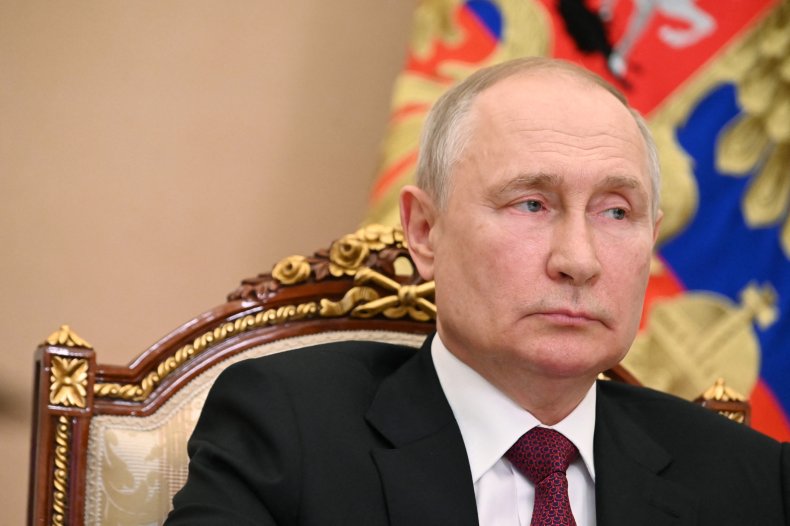Tensions between Russia and Poland are heating up after Poland moved troops near its border with Belarus amid concerns about the Wagner Group's presence in the region.
Russian President Vladimir Putin exiled the Wagner Group, a paramilitary unit, to Belarus following an attempted mutiny by Wagner Group leader Yevgeny Prigozhin against Moscow's military leadership last month, fueling concerns about stability across Eastern Europe. Poland, which shares a strategically critical northeastern border with Belarus, transferred 1,000 troops near its border earlier this month due to these concerns as a Russian lawmaker suggested the Wagner Group could attempt to seize the Suwalki Gap and cut off the Baltic states from the rest of Europe.
The Suwałki Gap, a small but strategically important strip of Polish territory between Russia and the exclave of Kaliningrad has long been a sticking point for Moscow.
These concerns have seen relations between Poland and Russia, which were already tense amid Moscow's invasion of Ukraine, further sour in recent days, particularly after Putin accused Poland of wanting to invade Ukraine.

On Friday, the Russian leader responded to Poland, a member of the North Atlantic Treaty Organization (NATO), about moving its soldiers near the Belarusian border, warning Warsaw against launching an attack against Belarus, an ally to Russia, during a televised meeting of the Security Council, according to a report from Politico.
Putin claimed, without evidence, that Poland appears to want to take control of its alleged "historic lands." He added that Poland wanted to take "a good chunk of Ukraine" and was also "dreaming of Belarusian lands," Politico reported on Saturday.
Putin added that Poland's "western territories" were a "gift from Stalin to the Poles," referring to Soviet Union leader Joseph Stalin.
"Aggression against Belarus will mean aggression against the Russian Federation," he said. "We will respond to it with all means at our disposal."
Meanwhile, Polish Prime Minister Mateusz Morawiecki hit back against the Russian leader's remarks in a tweet on Friday.
"Stalin was a war criminal, guilty of the death of hundreds of thousands of Poles. Historical truth is not debatable. The ambassador of the Russian Federation will be summoned to the Ministry of Foreign Affairs," he wrote.
Poland has also defended transferring troops near the Belarusian border.
Zbigniew Hoffmann, secretary of Poland's National Security Committee, told Polish news agency PAP that the moving of troops is justified given Belarusian military exercises, which he called a "provocation."
Stalin był zbrodniarzem wojennym, winnym śmierci setek tysięcy Polaków. Prawda historyczna nie podlega dyskusji. Ambasador Federacji Rosyjskiej zostanie wezwany do MSZ.
— Mateusz Morawiecki (@MorawieckiM) July 21, 2023
Germany has also weighed in, with its Defense Minister Boris Pistorius saying that it is prepared to help Poland secure its eastern region, according to British publication Express.
"They are NATO partners and reliable NATO allies, so we can confidently say that we are prepared," he said.
Newsweek reached out to the Russian and Polish foreign ministries for comment via email.
Russian Propagandists Responds to Inflamed Tensions With Poland
Putin's propagandists have commented on the growing tensions with Poland.
Sergey Mardan, a podcaster and host of Mardan Live/Solovyov Live, said that Russia's stance that Poland is "ridiculous" is "all in the distant past" as the country builds up its military.
"Poland is a pretty serious, pretty big military power, which is building up its military budget in an unbelievable accelerated way," he said. "Its military potential, it's doubling."
Meanwhile, an analyst on Russia's 60 Minutes program said Putin's remarks should be taken as a "warning" for Poland over its support for Ukraine, calling the country the leading "war hawk" in Europe.
These remarks were translated and posted to Twitter on Saturday by Anton Gerashchenko, an adviser to the Minister of Internal Affairs of Ukraine.
Attention, Poland!
— Anton Gerashchenko (@Gerashchenko_en) July 22, 2023
Russian propagandists think that Putin's discussions of history yesterday are a warning to Poland. pic.twitter.com/jmgkWkqyOp
Poland Denies Entry of Russian Tennis Player Vera Zvonareva
Amid growing tensions, Poland has denied the entry of Russian tennis player Vera Zvonareva into the country ahead of the Warsaw Open out of public safety concerns.
"The Border Guard prevented a Russian tennis player from entering Poland. Vera Zvonareva, using a visa issued by France, tried to get into our country on a flight from Belgrade to Warsaw," the Polish interior ministry said in a statement first reported by Reuters on Saturday.
The Women's Tennis Association told Reuters that the safety of its players remains a priority and that Zvonareva has left Poland.








